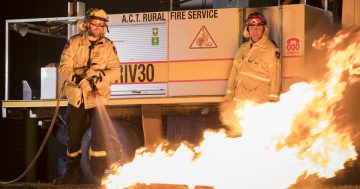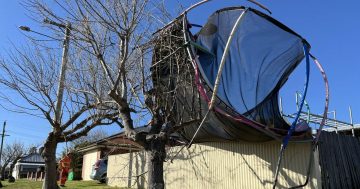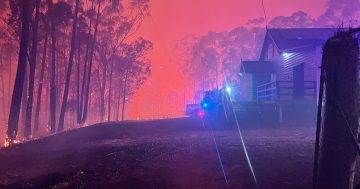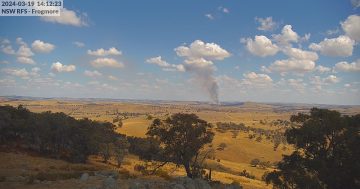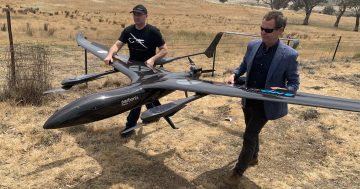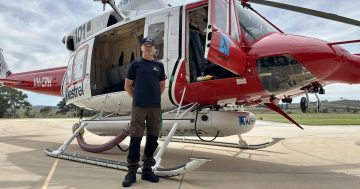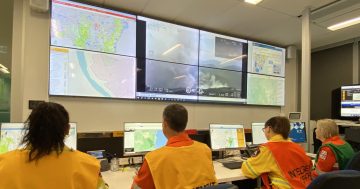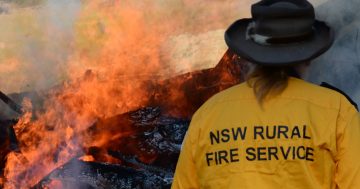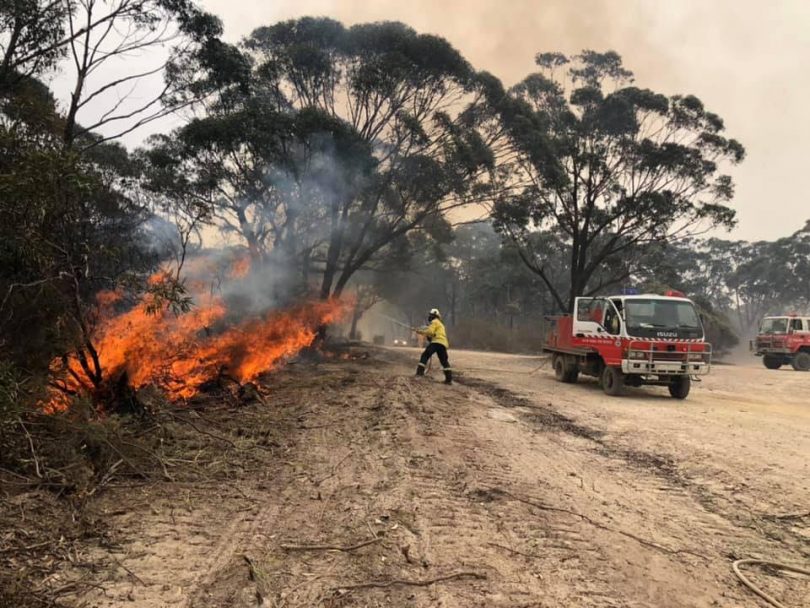
Landowners will need permits to light fires in the open from October 1. Photo: NSW RFS Southern Tablelands Zone Facebook.
The bushfire season begins in Yass Valley, Goulburn Mulwaree and Upper Lachlan Shire on Thursday and authorities say recent vegetation growth could be a challenge.
Between 1 October and 31 March, landowners in those areas will need a permit 24 hours before lighting a fire in the open.
Rain in winter and spring may have broken the drought and filled dams and rivers across South East NSW, however NSW RFS Operational Officer – Southern Tablelands Zone Michael Gapps said it had also increased fuel loads.
“Unfortunately, a lot of people have had to sell their stock [due to drought] and aren’t in a position to buy more stock, so we’re expecting a fair bit of grass growth over the next few months,” Mr Gapps said.
“Come January and February – when we experience higher temperatures – the grass will dry off and present a challenge for us. We also have a lot of dry bush vegetation that’s around and unburnt.”
The beginning of the bushfire danger period is a reminder to everyone to consider their bushfire survival plan and reduce hazards on their property, Mr Gapps said.
“I think, after a bit of rain, people become a bit complacent because they think they don’t need to worry and they fall into that trap of thinking they’ll mow the grass, clear the gutter or move objects away from their home at a later date,” he said.
“Practise your bushfire survival plan, discuss it with your family and neighbours so they are aware of what your plan is and can let us know in the event of a fire if you have already left.”
Last year the RFS was inundated with triple zero calls concerning smoke sightings that weren’t from fires locally but from fires on the South Coast and other parts of NSW.
Mr Gapps said the organisation recently received several calls around Bungonia and Tallong, near Goulburn, reporting pile burns by landowners that were, in fact, permitted.
He urged people who can only see smoke to check the Fires Near Me app, RFS website , or call the Bushfire Information Line on 1800 679 737 before calling triple zero.
“People can also call their local fire control centre but the 1800 number will free us up to manage potential incidents,” he said.
However, the recent rain has given authorities confidence that this bushfire season won’t be as bad as last year’s.
The RFS has also welcomed more than 100 new recruits in the Southern Tablelands since last summer’s devastating bushfire season. They have completed their training to assist with this bushfire season, while existing members have completed their advanced firefighter and crew leader training.
Local crews adapted to COVID-19 restrictions by holding training sessions online and at stations with smaller groups.
“We’re in a good position,” Mr Gapps said.
Original Article published by Hannah Sparks on About Regional.












